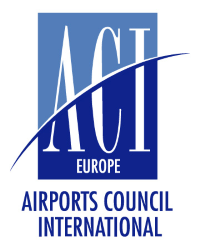
Brussels/Geneva -ACI EUROPE (Airports Council International) and the International Air Transport Association (IATA) called for all remaining COVID restrictions applying to intra-EU and Schengen area travel to be dropped, including all testing requirements, the need to present proof of vaccination, or complete a Passenger Locator Form (PLF). This includes dropping mask-wearing for travel within or between States where it is no longer required in other indoor environments.
COVID-19, and specifically the Omicron variant, is now pervasive throughout all of Europe, and population immunity is at such levels that the risk of hospitalization or death has dramatically reduced, especially for vaccinated people. States are adopting surveillance strategies to ensure public health, in the same way as they do for other coronaviruses and infectious diseases.
Many European states have lifted domestic COVID restrictions, such as the need to provide health credentials to enter social events, or the requirement to wear masks in public spaces. Contact tracing efforts are also being stood down, rendering PLFs for international travel redundant. As European countries open up and remove restrictions, it is only logical to remove similar restrictions from air transport.
IATA and ACI EUROPE presented further evidence in support of aligning air transport rules with domestic regulations.
New research by OXERA/Edge Health (pdf) published today shows that even if a new variant is discovered and travel restrictions introduced immediately, this only delays the peak of infections by a maximum of only four days.
In reality, by the time that a new variant emerges, is identified, and restrictions are put in place, the variant is likely already circulating in communities around the world. In a scenario where restrictions are delayed by a week from identification, the peak in infections per 100,000 people is only delayed by a maximum of two days. These negligible health benefits are therefore outweighed by the significant social and economic damage caused by the negative impact on air travel.
“March 11 marks exactly two years since the WHO announced COVID-19 was a global pandemic. In that time, we have seen increasing evidence that border restrictions are ineffective. The latest research from OXERA and Edge Health confirms that by the time a variant of concern is identified and restrictions are implemented, cross-border transmission will already have happened. Europe’s population immunity is strong and COVID-19 is essentially now an endemic disease. The time has come to focus their COVID efforts on surveillance and remove remaining intra-EU restrictions. This will free people to travel, and support jobs returning to the European air transport and travel sectors,” said Rafael Schvartzman, IATA’s Regional Vice President for Europe
“The independent research and modeling published today shows that governments can lift restrictions with confidence – both for today and for any future variants of concern. Travel restrictions have proven to be a blunt instrument with little to no impact on virus transmission. Removing all COVID-19 restrictions will finally fully restore the freedom to travel. That will be a much-needed boost for the whole travel and tourism sectors which has been forced to shed hundreds of thousands of jobs during the pandemic,” said Olivier Jankovec, Director General, ACI EUROPE.
In the light of the new research and increasing signs that the severity of COVID-19 is becoming closer to that of seasonal influenza, ACI EUROPE and IATA wrote jointly to Ministers of Transport and Health throughout EU member states, requesting to:
- remove all health-related travel and border restrictions ahead of the summer season, at least on intra- EEA flights, specifically testing, contact tracing, and vaccine certificates
- align the health restrictions applicable to aviation to those applied nationally, particularly with reference to mask mandates
- allow those vaccinated with a WHO-approved vaccine to travel into the EEA from third countries with the same conditions as those passengers vaccinated with an EMA-approved vaccine.
ACI EUROPE and IATA also reiterated the vital role played by the EU Digital Covid Certificate (DCC) in giving states the confidence to reopen borders and restart travel.
“We would like to use this opportunity to applaud the EU and Member States for the EU DCC development and implementation. We strongly support the value of the EU DCC which will remain crucial, especially for European citizens traveling abroad as well as for third countries. Likewise, the EU DCC will be useful for the containment of eventual variants of concern and enhance industry resilience against future health outbreaks,” the letter said.
Access the research by OXERA/Edge Health (pdf)
For more information, please contact:
ACI EUROPE
Virginia Lee
Director, Media & Communications
Tel: +32 2 552 09 82
Email: virginia.lee@aci-europe.org
IATA Corporate Communications
Tel: +41 22 770 2967
Email: corpcomms@iata.org
Notes for Editors:
- IATA (International Air Transport Association) represents some 350 airlines comprising over 80% of global air traffic.
- You can follow us on X for announcements, policy positions, and other useful industry information.
- Fly Net Zero
- ACI EUROPE is the European region of Airports Council International (ACI), the only worldwide professional association of airport operators. ACI EUROPE represents over 500 airports in 55 countries. Our members facilitate over 90% of commercial air traffic in Europe. Air transport supports 13.5 million jobs, generating €886 billion in European economic activity (4.4% of GDP). In response to the Climate Emergency, in June 2019 our members committed to achieving Net Zero carbon emissions for operations under their control by 2050, without offsetting.
- Ten states have removed all restrictions on intra-EU/EEA travel : Finland, Hungary, Iceland, Ireland, Liechtenstein, Lithuania, Norway, Slovenia, Sweden, and Switzerland.
- The OXERA/Edge Health report A study of the effectiveness of travel restrictions in the EEA can be accessed here from 11.03.22.
